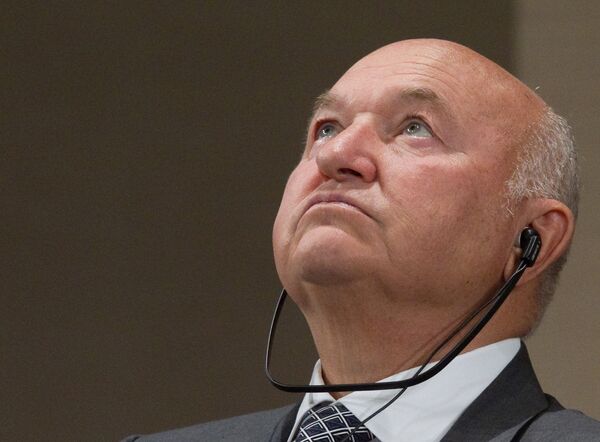One of the great survivors of post-Soviet politics, Yury Mikhailovich Luzhkov served 18 years as Mayor of Moscow, a role in which he oversaw the transformation of the Russian capital into a modern, world-class city.
Whilst he will always be remembered with transforming Moscow and getting things done, Luzhkov failed to break successfully into national politics as he craved to do, and made a long list of enemies, who finally saw a chance to bring him down.
Luzkhov was born in Moscow in 1936, and grew up in the capital. He forged a career in the chemical industry, and joined the Communist Party in 1968. He joined the Mossovet, the capital's city council, in 1977, but he became a national figure when he was appointed Mayor of Moscow in 1992, replacing the ineffectual Gavriil Popov.
Luzhkov proved to be a man who got things done, combining energy with a populist flair, such as wearing his trademark cap, that appealed to ordinary Muscovites. His project to reconstruct the Christ the Saviour cathedral exemplified his style - grandiose projects, realized with sometimes questionable methods, and often scant regard for Moscow's architectural heritage, or cost.
Luzhkov was reelected in 1996 and set out to turn Moscow into one of Europe's boomtowns. The capital changed enormously, but it was not to everyone's satisfaction.
Luzhkov married for a second time in 1991, and it was his relationship with his wife, Elena Baturina, that caused controversy. Baturina, today the world's third-richest woman, made billions on the back of construction contracts in the city ruled by her husband.
Luzhkov seemed to have even greater ambitions, and tried to step into national politics in the 1990s as he sensed Boris Yeltsin's grip on power slipping in 1999, when Prime Minister Yevgeny Primakov was in office. His party Otchestvo (Fatherland) was set up to support his bid for the presidency in the 1998 election, in concert with Primakov. However, Luzhkov had made many enemies on the national stage and many of those who had got rich in the Yeltsin era feared his populist statements about smashing oligarchs. When Vladimir Putin was appointed Prime Minister and then elected President in 2000, Luzhkov's place in national politics was seemingly buried.
He was reelected as mayor again and again, and kept a tight grip on Moscow's affairs. Despite rumors of ill-health and imminent resignation, he maintained he would stay on in the job. Signs of a terminal change in his political approval came in the summer of 2010, when he was criticized for not returning to Moscow during the crisis caused by fires outside the city. The message became clearer when programs were broadcast on TV explicitly criticizing his performance and his cosy relationship with his billionaire wife.
What remains precisely unclear as yet, is who decided that almost 20 years as Mayor of Moscow was enough, and why.
MOSCOW, September 28 (RIA Novosti)




